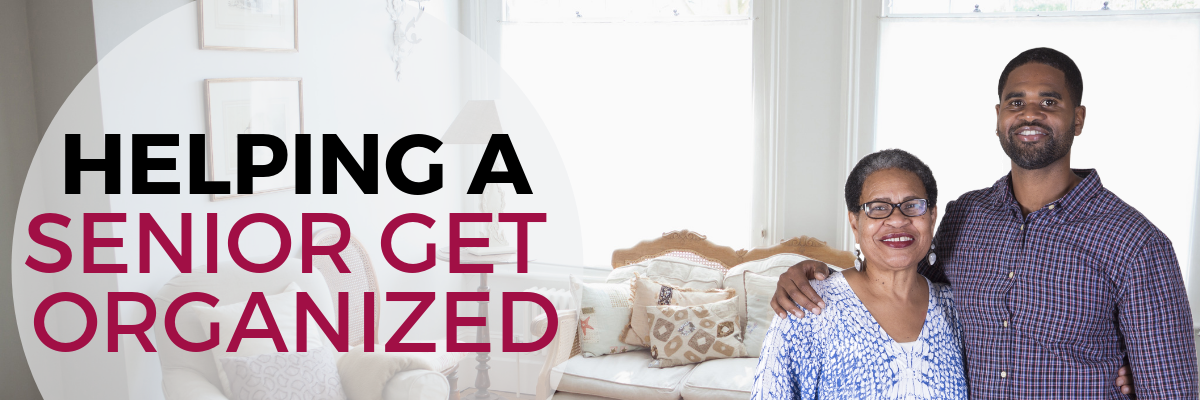
Getting organized offers many benefits to encourage healthy aging. With so many benefits to having an organized home like boosted mental clarity, lower stress levels, and lower risk of injury, why not get started reclaiming your space? The benefits can extend quality of life now and in the long run.
Follow these 7 expert tips to help your senior loved one get organized:
Create a plan after assessing which rooms in the home need the most attention.
Experts at Clarity Wealth Development suggest the best way to start organizing is to “[a]ssess your [loved one]’s situation and put a plan together. Go through their home and identify potential problems. Is their attic, basement and/or garage overstuffed? Are their kitchen cabinets or pantry filled with expired cans of food?
Create a calendar or schedule.
AgingCare.com blog contributor Carol Bradley Bursack writes, a dedicated “calendar specifically used for keeping track of appointments, entertainment, respite care and other engagements concerning your loved one can be very helpful."
If you happen to be tech-savvy, electronic calendar apps are available that "allow you to create entries for separate entities... Another benefit of going digital is the ability to share appointment information and availability with other care team members."
Repair or remove any hazards or items stored on the floor and stairs.
As we age, it can be a bit more difficult to move. It’s important to remove items like worn rugs, excess furniture, exposed cords, or any other objects that obscure a clear moving path. Experts at EverydayHealth.com recommend examining each “room and hallway, looking for items such as loose carpet, slippery throw rugs, or wood floorboards that stick up. Then repair, remove, or replace those items for more effective fall prevention.”
Be sure to keep the home bright and open.
According to the American Academy of Opthalmology, “seniors may have both a higher need for natural light and a harder time getting it than do younger people. A part of the natural light spectrum, called blue light, is important for our ability to maintain healthy bodily rhythms… like circadian rhythms or biorhythms.” Decluttering can open up a room and give a brighter lighter feel. Some experts even suggest using brighter bulbs, hanging colorful artwork, or opening windows, curtains, and blinds to let more natural light in as well.
Give important items a very visible easy accessible home.
As we age, it may become more difficult to climb stairs, reach for an item, or bend and crouch down. Placing important items in conveniently organized spaces can make it simpler to access an item when it’s needed. Industry expert Sabrina Quairoli suggests placing stored items between waist and upper thigh height. This can be especially helpful with medications. It’s important to clear out expired medications and irrelevant prescriptions.
Designate a securely locked space for important documents
Keeping pertinent information, paperwork, and records well organized and readily available, is the key to simplifying and addressing daily tasks efficiently. Senior care experts at aplaceformom.com suggest having items readily available like “official records...as well as… copies of these important financial, legal and health documents can save you thousands of dollars and countless hours of time spent tracking down records.”
Sort and store bills in a secure designated workspace.
Pulling financial information together is essential to tracking income, bills, and payments. Experts at AARP recommends you “sort quickly, putting like with like. Stacks may include documents, paid and unpaid bills, receipts, brokerage, pension and Social Security statements, medical expenses, contracts.” After sorting the items, organize the bills and other financial documents using a categorized binder or folders.
Other quick ways to clear space around your senior loved one’s home:
- Designate well-labeled baskets or bins for mail.
- Clear outdated and rarely used spices from the spice rack or cabinet.
- Clear the counter of rarely used appliances.
- Recycle old newspapers, catalogs, and greeting cards.